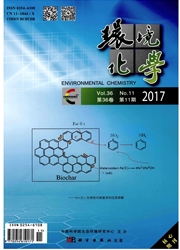

 中文摘要:
中文摘要:
甲状腺激素在脊椎动物新陈代谢、生长发育与繁殖等生理过程中起着重要的调节作用.环境污染物种类和数量不断增加,其中有很多污染物具有环境内分泌干扰的作用.甲状腺对环境污染物具有极敏感的反应,污染物不仅会引起滤泡及滤泡细胞大小、滤泡细胞数量和滤泡腔中胶质含量的改变,影响到甲状腺激素合成、分泌、转运以及代谢中多种酶的表达和活性变化,还参与和甲状腺激素的竞争性结合,进而影响到机体中由甲状腺激素调节的各项生理功能,甚至会导致机体趋于死亡.由于两栖类幼体——蝌蚪的变态发育阶段直接受到甲状腺激素的调控,现已被确认为筛选和研究环境内分泌干扰物的首选生物检测指示动物.
 英文摘要:
英文摘要:
Thyroid hormones play an important regulatory role in the metabolism, growth, development and reproduction of vertebrates. Among the increasing environmental pollutants, many of them are endocrine disruptors. Thyroid gland is very sensitive to the environmental pollutants. The pollutants can bring on many changes thyroid gland, such as the follicular size and number, colloid content in follicular cavity, synthesis, secretion changes and transportation of thyroid hormones, expression of a variety of enzymes in the metabolism, and of enzyme activity. They also bind competitively to thyroid hormone receptors and disrupt various physiological functions regulated by thyroid hormones, and even lead to death. As the metamorphosis of amphibian is controlled by thyroid hormones directly, tadpole has been recognized as the first type of pollution indicating animals in bioassay of screening and study of environmental endocrine disruptors.
 同期刊论文项目
同期刊论文项目
 同项目期刊论文
同项目期刊论文
 期刊信息
期刊信息
